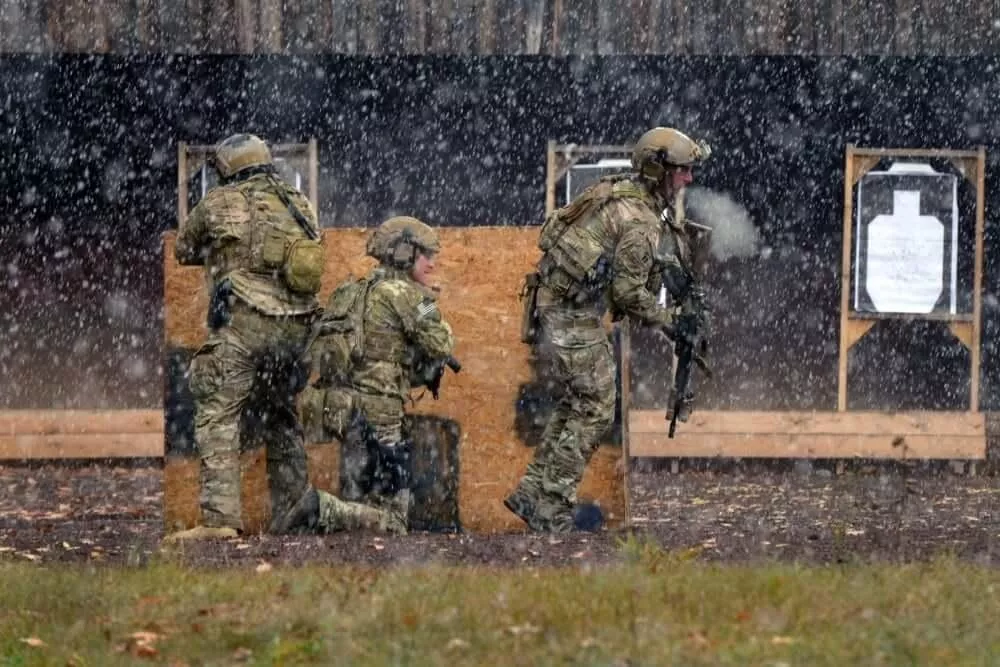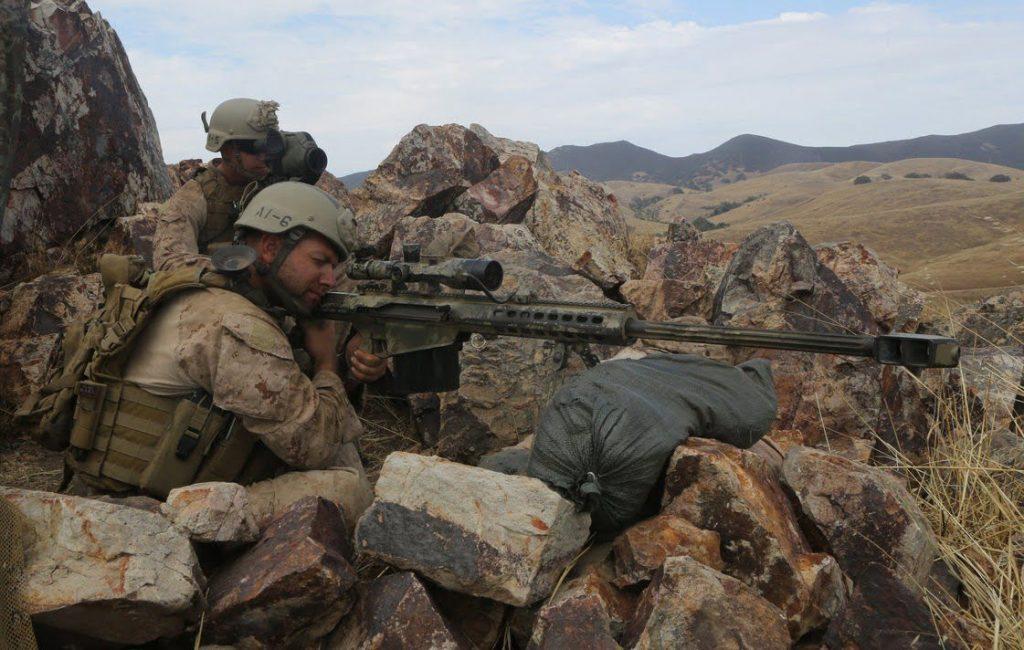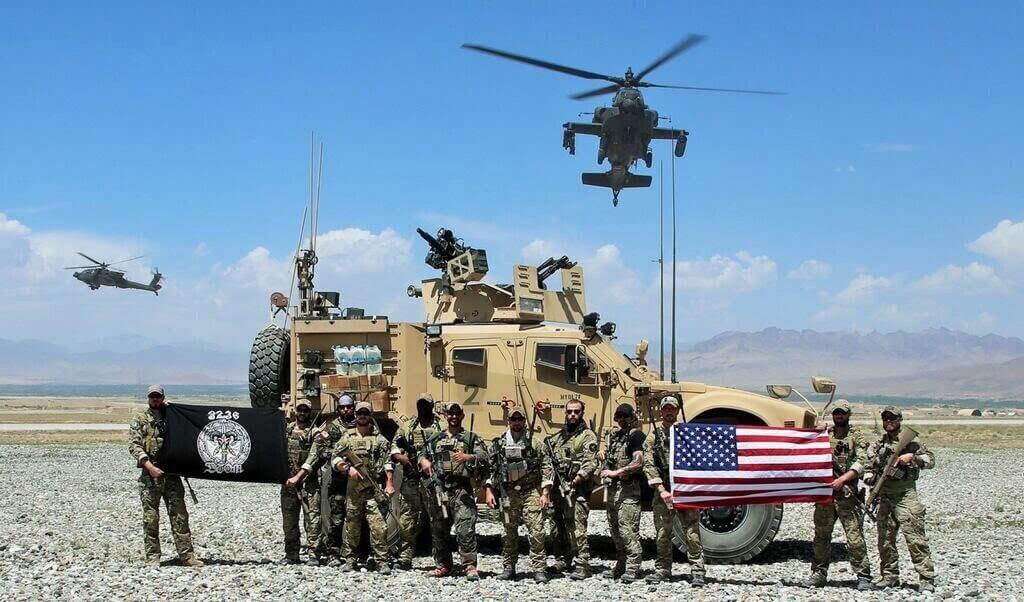Special Operations Forces missions are performed by operators who are trained to be swift and deadly if needed. It means that small units conduct direct or indirect military actions focused on strategic or operational objectives. Most of those missions are high-value and politically sensitive. Such missions require units with combinations of trained, specialized personnel, equipment, and tactics that exceed the routine capabilities of conventional military forces.
In case of failure, such missions could implicate damage to US prestige and interests. If they are Seal Team 6, Delta Force, 24th Special Tactics Squadron, or any other unit, that should not happen.
Those SOF missions are described as Special Operations Principal Missions. Types of Special Operations Forces missions are divided into 9 activities. Therefore, Special Operations Forces are organized, trained, and equipped specifically to accomplish these nine tasks.
Unconventional Warfare (UW)
A wide spectrum of military and paramilitary operations is carried out in enemy-held, enemy-controlled, or politically sensitive territory. Unconventional warfare includes, but is not limited to, the interrelated fields of guerilla warfare, evasion and escape, subversion, sabotage, and other low visibility operations, covert or clandestine nature. Conduct a broad spectrum of military and paramilitary operations. Green Berets’ primary task is unconventional warfare. In fact, unconventional warfare is a cornerstone of all Types of Special Operations Forces missions.

- Long-duration, indirect activities including guerrilla warfare and other offensive, low visibility, or clandestine operations.
- Mostly conducted by indigenous forces organized, trained, equipped, supported, and directed by special operations forces in varying degrees.
Direct Action (DA)
Either plain or covert action against a hostile force. Seize, damage, or destroy a target; capture or recover enemy personnel or material supporting strategic/operational objectives or conventional forces. All US Special Operations Forces units are trained for direct action.
- Short-duration, small-scale offensive actions.
- May require raids, ambushes, direct assault tactics; emplace mines and other munitions; conduct standoff attacks by firing from the air, ground, or maritime platforms; designate or illuminate targets for precision-guided munitions; support for cover and deception operations; or conduct independent sabotage normally inside the enemy-held territory.
Special Reconnaissance (SR)
This type of Special Operations Forces mission is important because teams are infiltrated behind enemy lines to obtain and provide intelligence on the enemy or gather information on an area’s terrain, local population, etc. Through observation or other collection methods, verify information concerning enemy capabilities, intentions, and activities in support of strategic/operational objectives or conventional forces.

- Reconnaissance and surveillance actions are conducted at strategic or operational levels to complement national and theater-level collection efforts.
- Collect meteorological, hydrographic, geographic, and demographic data; provide target acquisition, area assessment, and post-strike reconnaissance data.
Foreign Internal Defense (FID)
FID operations are an essential type of Special Operations Forces missions designed to help friendly developing nations by working with host country military and law enforcement forces to improve their technical skills, understanding of human rights issues, and help with humanitarian and civic issues action projects. FID missions assist another government in any action program taken to free and protect its society from subversion, lawlessness, and insurgency.
- U.S. government interagency activity fosters the internal development of a nation’s structure’s economic, social, political, and military segments.
- Train, advise, and assist host-nation military and paramilitary forces.
Counter-terrorism (CT)
Offensive measures are taken to prevent, deter, and respond to terrorism. Preempt or resolve terrorist incidents—an interagency activity using highly specialized capabilities. There are certain SOF teams, tactically staggered, who are ready to answer anywhere around the globe in less than a few hours if needed.
Psychological Operations (PSYOP)
PSYOPS and this type of warfare had a significant increase in last years. Induce or reinforce foreign attitudes and behavior favorable to U.S. objectives. Influence emotions, motives, and behavior of foreign governments, organizations, groups, and individuals.
Civil Affairs (CA)
Establish, maintain, influence, or exploit relations among military forces, civil authorities, and civilian populations to facilitate military operations.
- It may be conducted as stand-alone operations or in support of a larger force.
- May include military forces assuming functions normally the responsibility of the local
- government.
Coalition Warfare/Support
Ensures a wide variety of foreign troops to work together effectively in a wide variety of military exercises or operations such as Operation Desert Storm. Draws upon the SOF soldier’s maturity, military skills, language skills, and cultural awareness.
Humanitarian and Civic Action (HCA)
SOF soldiers’ diversified military skills, language capabilities, and cultural training make them a natural choice for supporting humanitarian and civic action Operations.
Other Individual Missions
Besides the individual skills of operations and intelligence, communications, medical aid, engineering, and weapons, each Special Forces soldier is taught to train, advise, and assist host-nation military or paramilitary forces. Special Operations Forces operators are highly motivated, skilled soldiers, trainers, and teachers. Area-oriented, these operators are specially trained in their area’s native language and culture.

Other Special Operations Missions
In addition to the above-specialized missions, the various Special Operations Commands must:
- Prepare assigned forces to carry out special operations missions as required and, if directed by the president or secretary of defense, plan for and conduct special operations.
- Develop doctrine, tactics, techniques, and procedures for special operations forces.
- Conduct specialized courses of instruction for all special operations forces.
- Train assigned forces and ensure the interoperability of equipment and forces.
- Monitor the preparedness of special operations forces assigned to other unified commands.
- Develop and acquire unique special operations forces equipment, material, supplies, and services.
- Consolidate and submit program and budget proposals for Major Force Program II.
- Monitor all special operations forces personnel’s promotion, assignments, retention, training, and professional development.
These would be types of military missions related to small special operations forces teams who can strike surgically fast and do things undetected but not related only to them. Some regular military units could do some of the missions from above listed.





